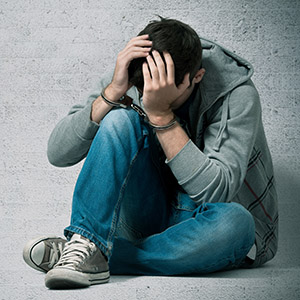
Texas Family Code defines a child as a person aged 10 to 17. In the Texas criminal justice system, children under age 10 cannot be prosecuted for a crime but they could be provided with services if the state feels that’s needed to help them stay out of the juvenile justice system.
17-yr-olds facing charges for a crime committed beforethey turned 17 – a crime that would be defined as delinquent conduct or conduct indicating a need for supervision – are also charged in juvenile court. But after a child turns 17, they are now involved with the adult justice system.
Texas is one of only three states that charge 17-year-olds as adults. The Texas Criminal Justice Coalition has been campaigning for a number of years to raise the ageat which a child can be tried as an adult to 18. House Bill 967 and Senate Bill 1552, introduced in the 2021 legislative session, would have done just that. Unfortunately, the legislative session ended with no action taken.
The vast majority of crimes committed by 17-year-olds are non-violent. They are the kind of trouble kids get into without thinking that this could lead to a really bad outcome. A review of juvenile offenses from 2012 to 2015 found that 17-year-olds are most often charged with:
Theft/shoplifting (20%)
Drug possession (19%), mostly small amounts of marijuana
Fighting or assault (11%)
Vandalism
Underage drinking
These are the same crimes 16-year-olds are charged with, but now that the accused is 17, their case is moved to the adult criminal justice system and they lose access to the legal protections provided to juveniles, like parental notification, private hearings, and private records.
They lose access to the rehabilitation services that the juvenile justice system offers, like anger management classes, educational services, monitoring of classroom attendance, life skills and vocational skills training, drug treatment services, counseling, and family services.
The juvenile justice system is strongly oriented toward rehabilitation, in addition to public safety. While it’s no cakewalk for the young person who is convicted of a crime, and it can be hard work, everyone wants to see the young person succeed and move on with their life.
Young people can and do succeed after they’ve been in the Texas juvenile justice system. It is much more effective at reducing recidivism than the adult system. A study by the CDC found that youth who are transferred from juvenile to adult criminal facilities are 34% more likely to be rearrested for a crime.
Young people in the adult justice system are more likely to suffer depression, and physical or sexual victimization. They will have an adult criminal record, which can limit their future employment, education, and housing.
The unfortunate truth about the ineffective and harsh way Texas treats 17-year-old children points to the need for change, and the importance of having a highly experienced, knowledgeable, driven, and effective defense attorney who understands both juvenile criminal law and adult criminal law. Call (972) 427-5473 or contact defense attorney Matthew Maddox to talk about the case against your young person.

Call For A Free Consultation
(972) 427-5473